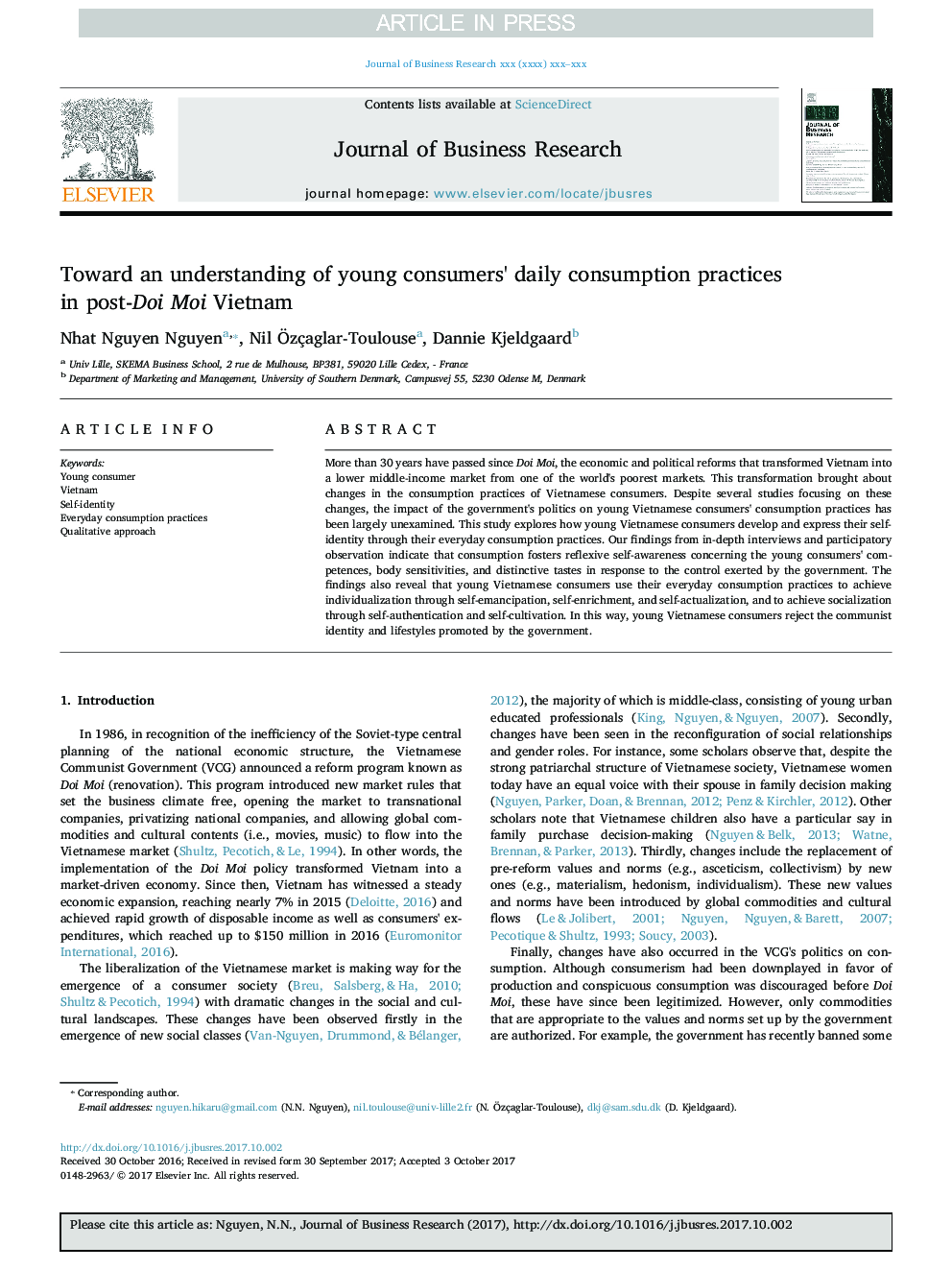| Article ID | Journal | Published Year | Pages | File Type |
|---|---|---|---|---|
| 7425343 | Journal of Business Research | 2018 | 11 Pages |
Abstract
More than 30Â years have passed since Doi Moi, the economic and political reforms that transformed Vietnam into a lower middle-income market from one of the world's poorest markets. This transformation brought about changes in the consumption practices of Vietnamese consumers. Despite several studies focusing on these changes, the impact of the government's politics on young Vietnamese consumers' consumption practices has been largely unexamined. This study explores how young Vietnamese consumers develop and express their self-identity through their everyday consumption practices. Our findings from in-depth interviews and participatory observation indicate that consumption fosters reflexive self-awareness concerning the young consumers' competences, body sensitivities, and distinctive tastes in response to the control exerted by the government. The findings also reveal that young Vietnamese consumers use their everyday consumption practices to achieve individualization through self-emancipation, self-enrichment, and self-actualization, and to achieve socialization through self-authentication and self-cultivation. In this way, young Vietnamese consumers reject the communist identity and lifestyles promoted by the government.
Related Topics
Social Sciences and Humanities
Business, Management and Accounting
Business and International Management
Authors
Nhat Nguyen Nguyen, Nil Ãzçaglar-Toulouse, Dannie Kjeldgaard,
